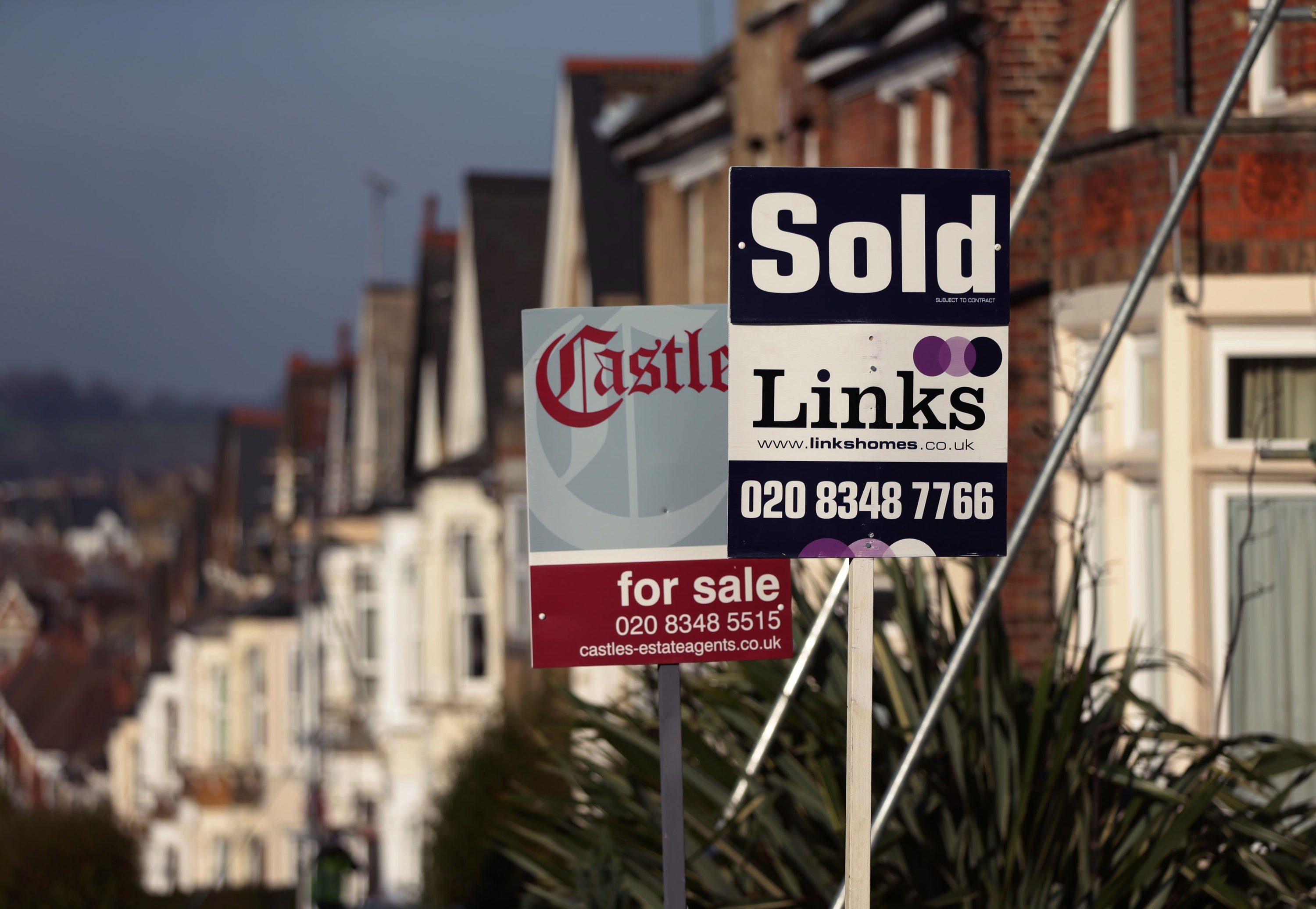Chaos stalks mortgage market after disastrous mini-Budget
More than 350 mortgage products have been withdrawn and Zoopla is seeing the first signs of a housing market correction

It’s Chaos Walking in the UK economy, and yes that was a very bad film but then the UK has a very bad economy at the moment.
A quick recap of Wednesday’s events: hot on the heels of an unprecedented IMF rebuke to Britain’s new economic strategy (something that does not usually happen to a G7 economy that is being sensibly run); the Bank of England was forced to intervene in the bond markets by announcing an emergency purchase programme; the pound continued to wobble and so did the UK-focussed shares on the FTSE 250 index of mid-tier stocks.
However, the real horror for the Tory party – for the MPs who are not so ideologically blinkered that they can’t see the horrible problems Liz Truss has created for them – lies in the housing market.
“What’s basically happened is that the financial impact of the energy crisis on people has shifted to the mortgage market. And you can’t bail that out,” is how a banker of my acquaintance put it.
So far, more than 350 mortgage products have been withdrawn from the market. They will return, so that buyers can obtain the loans they need, but they will be an awful lot more expensive. The market is expecting UK interest rates to rise sharply and it has moved in anticipation of that.
Zoopla, which releases its regular house price index on Thursday morning, thinks potential purchasers’ buying power could be slashed by as much as 28 per cent if mortgage rates reach 5 per cent by the end of the year, which isn’t an unreasonable assumption, assuming buyers want to keep their monthly repayments unchanged.
The housing market will ultimately correct itself to take account of that – although older Tory voters who had been looking to maybe downsize and cash in on the 10 years of house price growth recorded in just two will not be happy.
There are already signs of it happening. Zoopla says growth remained stable in August at 8.2 per cent annually. However, it says 6 per cent of homes listed for sale saw their asking prices adjusted downwards by 5 per cent or more, the highest level since before the pandemic.
Of still more concern is how existing borrowers, unused to this sort of thing, are going to manage their debts looking forward.
Those on standard variable rate mortgages or base rate trackers are going to see a succession of sharp price rises as the Bank acts to curb the inflationary effect of the Truss/Kwarteng tax cuts and energy support plan, and the fallout from their recklessness, which has had a bruising effect on the UK’s finances and the confidence markets have in its governance.
Those on fixed-rate deals that are coming to the end of their terms are, meanwhile, going to find their repayments suddenly shoot up by potentially hundreds of pounds a month. Spell: unsustainable. At least for some.
This is how the shift from the energy price cash crisis to the mortgage cash crisis that my banker friend observed has been made manifest.
Some of those people may struggle to afford to their repayments because nobody saw this coming when they were crunching the numbers and looking at what they could afford.
Consider now what may happen to mortgage rates if it is base rates that hit 5 per cent. Or go even higher. Forecasters think they may well do that.
The chancellor’s disastrous mini-Budget has raised the peak. Figures such as 5.5 and even 6 per cent are being talked about.
Just about the only thing working in the favour of Kwasi Kwarteng and the other Treasury ministers is that rates of employment remain high. People tend to prioritise mortgage repayments over other forms of debt, as well they might. They can usually find a way if they are in work, even if that involves painful sacrifices.
But what if that work vanishes? The theory behind the Tories’ debt funded tax cuts is that, when combined with deregulation, they will deliver the growth that the sluggish UK economy has been sorely lacking.
But sharply rising interest rates imposed on an economy already on a downward trend – the Bank thinks we are already in recession – will strangle what little growth is available counteracting any beneficial impact from the government’s revival of the discredited “trickledown” theory of economics.
Britain’s labour market has been tight for sometime, thanks in no small part to an exodus of mostly older workers leaving employment since Covid. But if firms start making redundancies, that could change.
The housing market’s spectacular growth over the last couple of years has been sustained by a marked lack of supply. A sudden rise in repossessions from owners who can’t keep up with their mortgages would change that – though it would not be the solution anyone hoped for.






Join our commenting forum
Join thought-provoking conversations, follow other Independent readers and see their replies
Comments